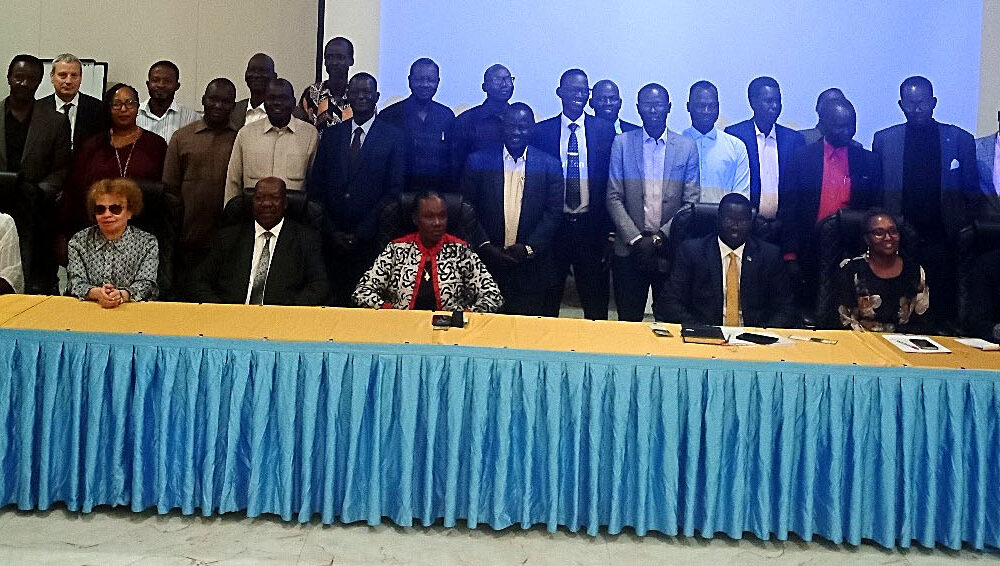By William Madouk
Security sector reforms is a vital element in South Sudan’s Revitalized Peace Agreement.
The Minister of Interior, Angelina Teny remarked this while opening a three-day on Security sector reform and transition justice in South Sudan.
“We have to remember that the security sector is responsible for or partially responsible for, dispensation of justice, which is an element, crucial for ensuring sustainable peace in the country,” she said.
International Centre for Transitional Justice (ICTJ) organized the workshop with Strategic Defences and Security Review Board (SDSRB).
Minister Teny, who is also the co-chair of SDSRB, recounts the significance of security reforms in the Revitalized Peace Agreement
“When we embark on working on the strategic security sector, one of the contexts is state building. Which means, we look at state institutions, their effectiveness to deliver on security,” she added.
Meanwhile, the interim chairperson of RJMEC Maj-Gen Charles Tai Gituai said no much attention was given to understand and appreciate the linkages between transition justice and security reforms.
‘However, the two mutually affect each other in a manner of ways and, if properly addressed, can enhance long-term reforms and sustainable peace,” said Gituai.
“The values of transition justice in relation to security sector reforms would be fathomed through criminal prosecutions and the use of the law to protect the rights of the people,” he added.
According to him, South Sudan is a country that is emerging from conflict and will be required to address the issues of repression and systematic human rights violations emerging from periods of conflict.
“This, therefore, requires that transition justice system be in place to address cases, that the normal justice systems will not be able to provide an adequate response, depending on their nature and the need for reconciliation and healing,”
“Therefore, the initiative of Transition Justice seeks to empower victims, marginalized groups, and communities affected by conflict to achieve accountability, justice, redress, reconciliation, and sustainable peace,” he said.
Besides, Gituai noted that security sector reforms are a political and technical process of improving state and citizens’ security.
Elizbeth Haynes, officer in charge of the UNMISS Human Right Division, said there is a need to stop impunity by vetting security personnel to see those who are active and prosecute those responsible for grave human right violations.




